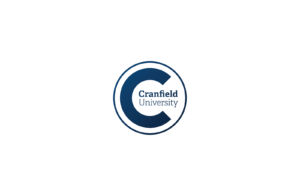Choosing the Correct Public School for Your Child
Choosing the Correct Public School for Your Child
Unlike most of the world, public schools in the United Kingdom refer to fee-paying schools and are not state funded. Other names for this system include private schools, independent schools and preparatory schools. There are hundreds of public schools in the United Kingdom with some being world renowned, others being excellent and some even being subpar. How can one tell which school will suit their child best?
Before deciding what constitutes a good public school and what constitutes a bad one, parents must ask themselves what their priorities are in selecting a school. These priorities can range from great exam results to cultural enrichment, or to being a single sex school. The first step to choosing a school is highlighting your priorities.
Secondly, you must assess the needs and abilities of your daughter or son. There is no sense in deluding yourself about your child’s strengths and at the same time you must not underrate your child’s academic capabilities. Some schools offer better support for those with learning difficulties, while others specialise in offering programmes to those for whom English is a second language. Additionally, you should keep your child’s interests in mind. For example, if your child is highly interested in the arts or music, you can choose a school with excellent music and arts facilities.
Thirdly, you should decide what type of education system you want your child to be enrolled in. Most public schools teach the traditional British system of GCSEs and A levels. This system allows pupils a wide range of choice. Students are allowed to drop many of the subjects they are bad at and instead specialise in their areas of strength. Other schools do the International Baccalaureate (IB) programme. The IB requires pupils to do seven subjects including science, math, humanities and a foreign language. It also requires pupils to play sport, choose a creative hobby and to volunteer on a weekly basis.
The older schools tend to have better reputations. A good rule of thumb is where do British people prefer to send their children as they know the system better than those from abroad. Some British schools have a secret quota of no more than 10% international students. If a school accepts too many students from a specific country, it may result in these students starting to speak their own language instead of English, which likely was the main reason for attending school in the United Kingdom.
It is important to speak to an educational consultant and to listen to their experienced advice. If you want your child to go to one of the most outstanding schools, then he or she must be registered at a very young age. For instance, Eton, Harrow and Winchester require pupils to be signed down by the age of eight for a start at 13. However, there are many other excellent schools that allow you to register your child at a later age.
A superb public school will produce outstanding examination results, have world class facilities, employ well-qualified staff and uphold discipline. These schools are well-regarded and will help your child enter adulthood happy, confident and with all the necessary life skills.
There are schools to suit each and every pupil. It is exceedingly important for your child’s future to get this choice right. Please book a free consultation with us today to discuss your options.
The content of this blog post is credited to George Callaghan, our official Oxbridge and public school Specialist.






